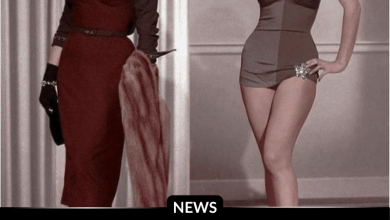Marilyn Monroe Once Shared the One Night She’d Relive — “That Night, I Wasn’t an Actress. I Was Free.”
OPINION: This article may contain commentary which reflects the author's opinion.
To the world, Marilyn Monroe was the ultimate symbol of glamour — a platinum-haired star with a radiant smile, a voice that could melt a room, and a magnetic presence that defined an era. But behind the carefully constructed Hollywood image lived a woman who longed for something quieter and far more human: freedom.
In one of her final interviews, just months before her untimely death in 1962, Monroe was asked a simple yet piercing question:
“If you could relive one night in your life, what would it be?”
Her answer wasn’t about premieres or the flash of cameras. It wasn’t about diamonds, fame, or the adoration of millions. It was about a single evening in New York — a night when, for a few precious hours, she shed the persona of Marilyn and returned to being Norma Jeane.
“That night, I wasn’t an actress,” she said softly. “I was free.”
A Night Without Cameras
The moment Monroe cherished most took place in 1955, a pivotal time when she had moved to New York to study acting under Lee Strasberg at the Actors Studio. She was determined to grow beyond her bombshell image and be seen as a serious artist.
One evening after class, she joined a small group of friends and fellow students on the roof of her East 57th Street apartment. There were no photographers waiting, no reporters tracking her moves — just city lights humming below and a record player spinning in the corner.
“We were laughing, drinking cheap wine, dancing barefoot on the roof,” she recalled. “It was cold, but I didn’t care. For the first time in years, I didn’t have to pretend to be anyone.”
Someone played Nat King Cole’s “That’s All.” Monroe closed her eyes and swayed to the music — clumsy, unguarded, alive.
“I remember thinking, this is what it feels like to be alive,” she said. “No script. No direction. Just me.”
“The First Time I Felt Real”
That rooftop night marked a quiet turning point. Monroe, who had spent years living up to the world’s idealized fantasy of her, found herself reconnecting to her truest self.
“I’d spent years trying to be perfect,” she said. “But that night, I realized I didn’t need to be. I just needed to be real.”
She stayed on the roof until sunrise, wrapped in a blanket, watching New York wake below her. It was, she later told friends, the first time in years she felt peace.
“No one wanted anything from me. I didn’t have to smile. I could just be.”
That simple moment — quiet, ordinary, yet profound — became what she called her “sanctuary in the sky.”
Freedom in a Fleeting Moment
Monroe would go on to star in some of her most iconic films — Bus Stop, Some Like It Hot, The Misfits — but she often spoke of that night as the most authentic she ever felt.
“I wasn’t acting,” she said. “I wasn’t beautiful or clever or famous. I was just a girl in the dark with the wind in her hair — and that was enough.”
Friends say she returned to that memory often, especially during her loneliest periods. “When the world got too heavy,” one friend recalled, “Marilyn would talk about that rooftop night. It was her happy place.”
“If I Could Go Back…”
When asked what she would change if she could relive that night, Monroe smiled gently.
“Nothing,” she said. “Not a single thing. Because for once, I wasn’t chasing anyone’s idea of me. I was just there — breathing, laughing, alive.”
Then, almost to herself, she added:
“Maybe that’s all any of us want — one night where we’re not performing, just being.”
A Glimpse of Norma Jeane
That single rooftop evening captured what Marilyn Monroe spent her life searching for: a sense of self unburdened by fame and expectation. Beneath the legend was always a woman longing to feel real.
“That night, I wasn’t Marilyn Monroe,” she once said. “I was Norma Jeane. I was free.”
It’s a memory that continues to resonate decades later — a reminder that even the brightest stars spend their lives yearning for the simplest light of all: their own.
Would you like me to make this piece shorter and more news-style, or keep it in this reflective, magazine-feature tone that feels intimate and timeless?



